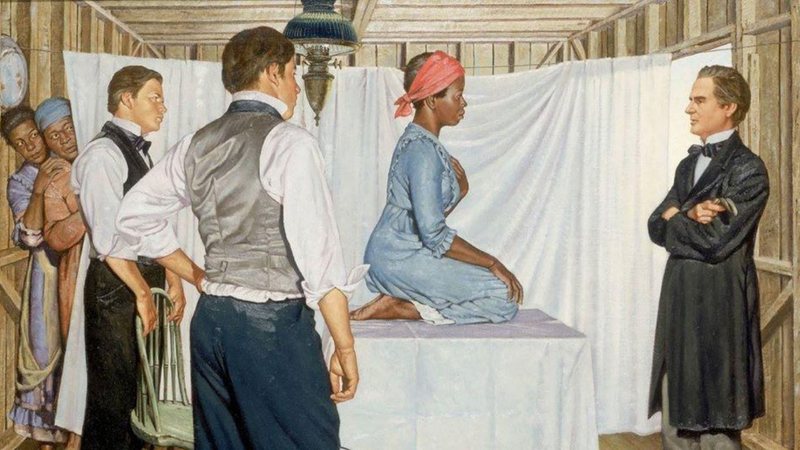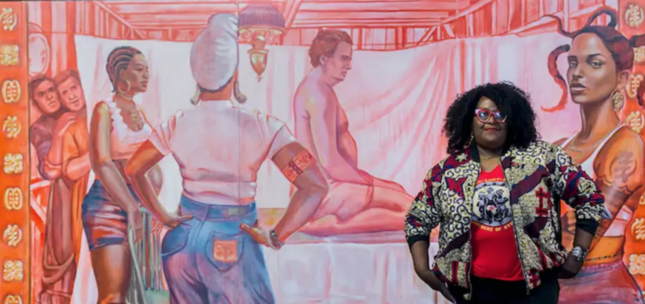The legacy of contemporary American medicine—including medical education and clinical practice—is deeply rooted in the white supremacist culture and institutions that have existed since before the inception of this nation and are responsible for the colonization of Indigenous people and the African slave trade. The discipline of Gynecology is no exception.
In this module, you will have the opportunity to learn and explore how people who were enslaved both forcibly and by their own volition, contributed to the discipline of Gynecology as we know it, teach it, and practice it today. In addition, you will also learn (or relearn) how white supremacy and racism have and continue to infuse our daily teaching and clinical practice as providers of SRH and primary care in general. Moreover, you will be able to recognize the linkage between racism and the resulting health inequities that permeate our healthcare system today. Lastly, it is our hope that the curated resources provided here will also produce stimulus, impetus, and inspiration for real change.

Robert Thom, “J. Marion Sims: Gynecologic Surgeon, from ‘The History of Medicine.'” From the collection of Michigan Medicine, University of Michigan
This module is part of RHEDI’s Justice & SRH Unit, which focuses on Reproductive Justice in sexual and reproductive health.
The module can be used for self-study or as part of group didactic sessions. Learners have the opportunity to discuss the material with their peers in RHEDI’s Curriculum Discussion Forum, to share their responses anonymously, and to submit their answers to their instructor. The module is also available on the RHEcourse learning management system.
Deirdre Cooper Owens. “The Birth of American Gynecology” In Medical Bondage: Race, Gender, and the Origins of American Gynecology, 15–41. University of Georgia Press, 2017. https://doi.org/10.2307/j.ctt1pwt69x.6.
Evelynn M. Hammonds and Susan M. Reverby. Toward a Historically Informed Analysis of Racial Health Disparities Since 1619. American Journal of Public Health, 2019. 109, 1348_1349, https://doi.org/10.2105/AJPH.2019.305262
Deirdre Cooper Owens and Sharla M Fett. Black Maternal and Infant Health: Historical Legacies of Slavery. Am J Public Health. 2019 Oct;109(10):1342-1345. doi: 10.2105/AJPH.2019.305243. Epub 2019 Aug 15. PMID: 31415204; PMCID: PMC6727302.
Zinzi D. Bailey, Justin M. Feldman, and Mary T. Bassett. How Structural Racism Works—Racist Policies as a Root Cause of U.S. Racial Health Inequities. N Engl J Med. 2021 Feb 25;384(8):768-773. doi: 10.1056/NEJMms2025396. Epub 2020 Dec 16. PMID: 33326717.
Race-Based Medicine in Diagnosis and Treatment, [Sections 3.0–3.4] Institute for Healing and Justice in Medicine
The US medical system is still haunted by slavery, Ranjani Chakraborty, Vox
The link between health and racism, TED Playlist with Dorothy Roberts, Heather McGhee, Mary Bassett, et al.
Towards the Abolition of Biological Race in Medicine: Transforming Clinical Education, Research, and Practice Institute for Healing and Justice in Medicine
A Black Girl Walks Into a Bar: Race-based Diagnoses & Guidelines, Angela Zhang, Not Built for Us
To Do No Harm? What modern medicine gained from slavery, and how slaveholders sought to legitimize their ideology through science, with Deirdre Cooper Owens, Jamelle Bouie, and Rebecca Onion
Dear White People, Krys E. Foster, Christina N. Johnson, and Cleveland Piggott, AFP: American Family Physician Podcast
Also see:
Foster KE, Johnson CN, Carvajal DN, Piggott C, Reavis K, Edgoose JYC, Elliott TC, Gold M, Rodríguez JE, Washington JC. Dear White People. Ann Fam Med. 2021 Jan-Feb;19(1):66-69. doi: 10.1370/afm.2634. PMID: 33431395; PMCID: PMC7800738.

Michelle Browder, with her “Mothers of Gynecology” mural in Montgomery, Alabama. For more see: https://www.anarchalucybetsey.org/
Reflection questions:
1. Drawing on the chapter from Deirdre Cooper Owens’s Medical Bondage, describe how white male physicians benefited economically and professionally from unconsented surgeries and experimentation focused on the reproductive capacity of women who were enslaved.
2. After watching the video from Ranjani Chakraborty (“The US Medical system is still haunted by slavery”) and reading the NEJM article (“How Structural Racism Works—Racist Policies as a Root Cause of U.S. Racial Health Inequities”) describe how fraudulent medical concepts rooted in white supremacist ideology and clinical practices carried out on enslaved populations frequently show up in contemporary medical culture and practice in the U.S as scientific truth.
3. Consider and describe potential next steps for abolishing race as a biological factor from medical practice and teaching. Consider also that race, while not a biological factor for health, has profound socioeconomic and socio-political influences on wellbeing and health (as racism). How do we reconcile these notions and move forward to care for patients?
Submit your reflections directly to your instructor or share at: https://rhedicommunities.org/discuss
Captive Patients: Gynecology, Slavery, and the Rise of American Medicine
Learning Objectives: